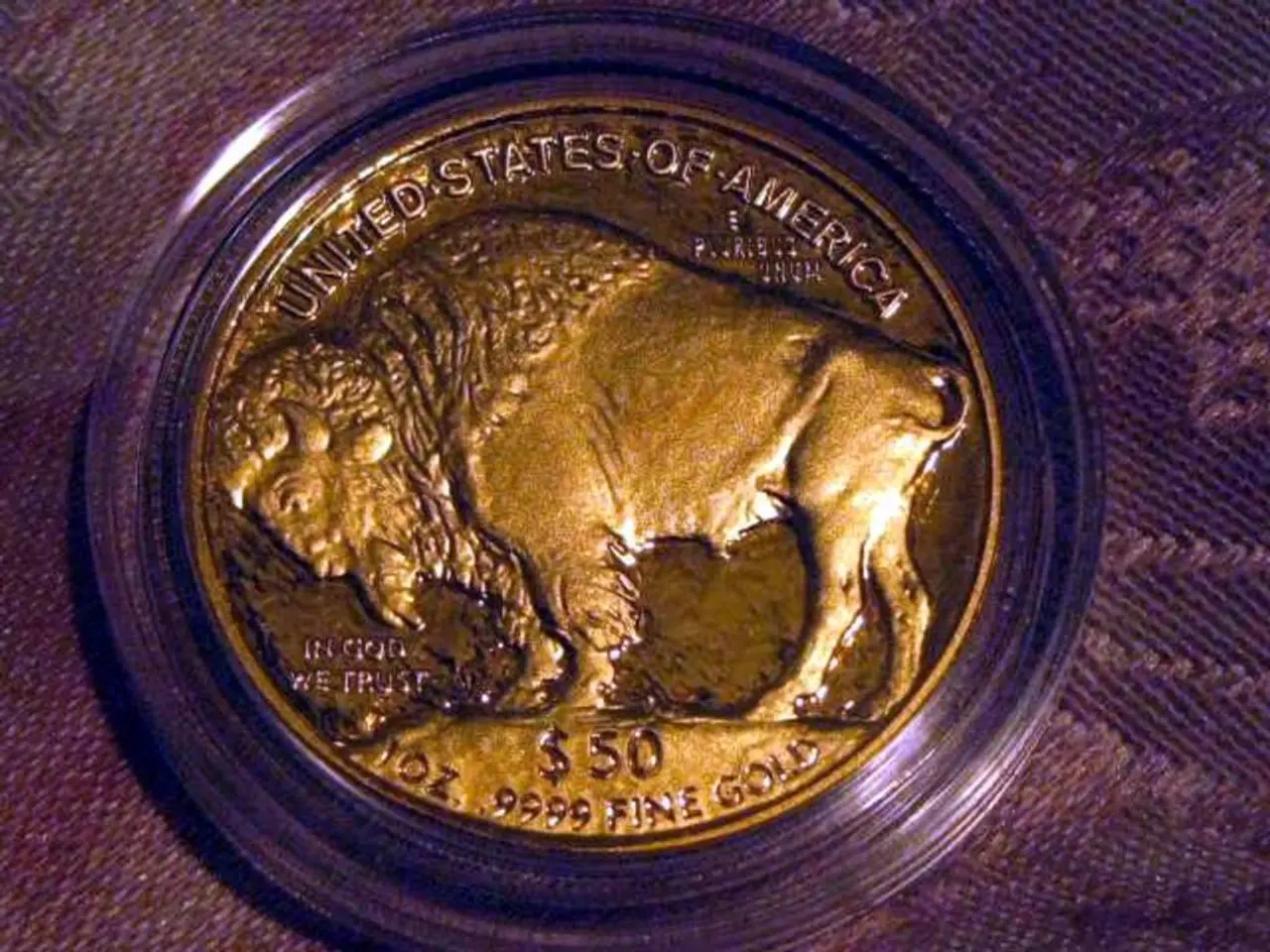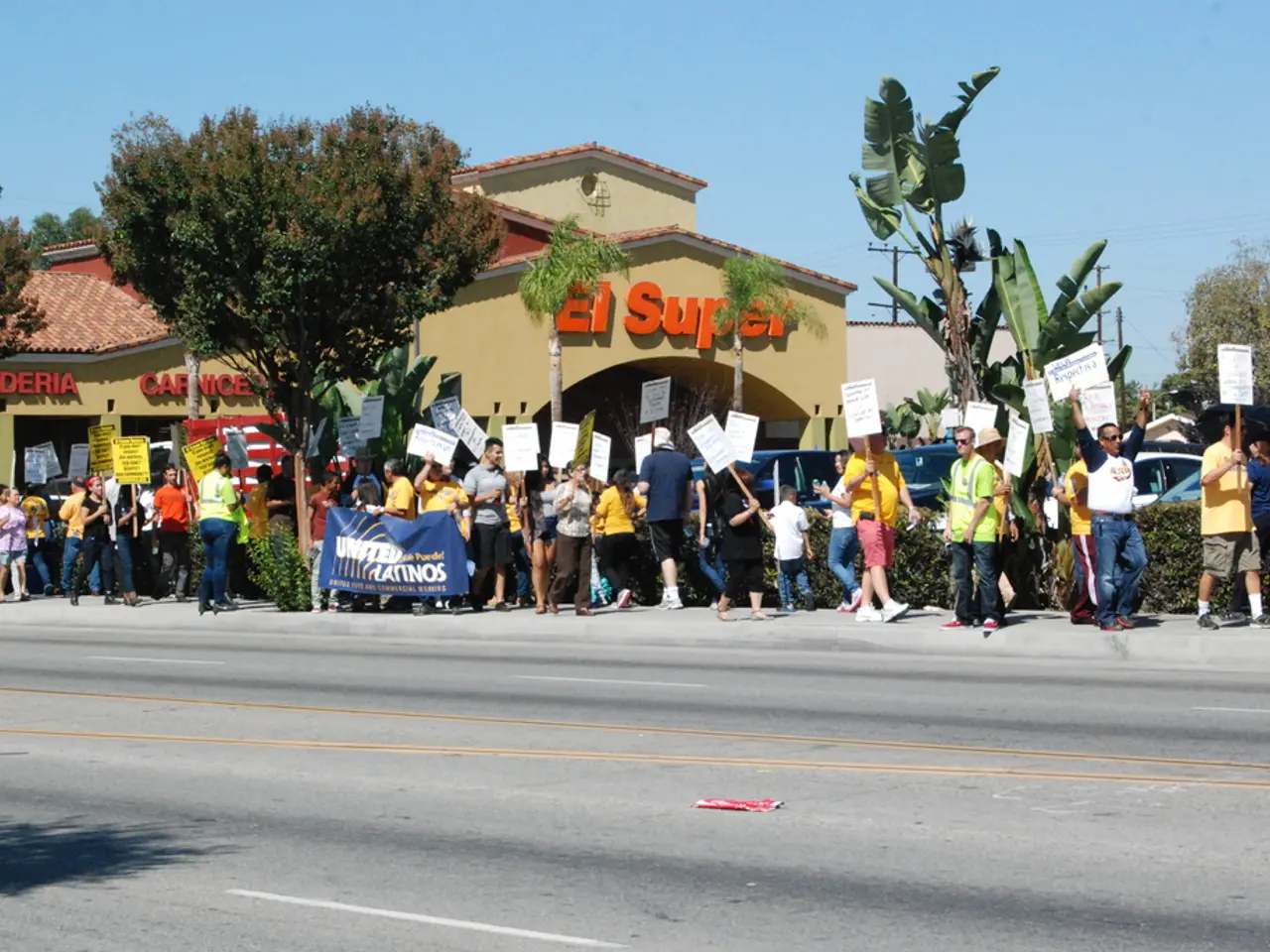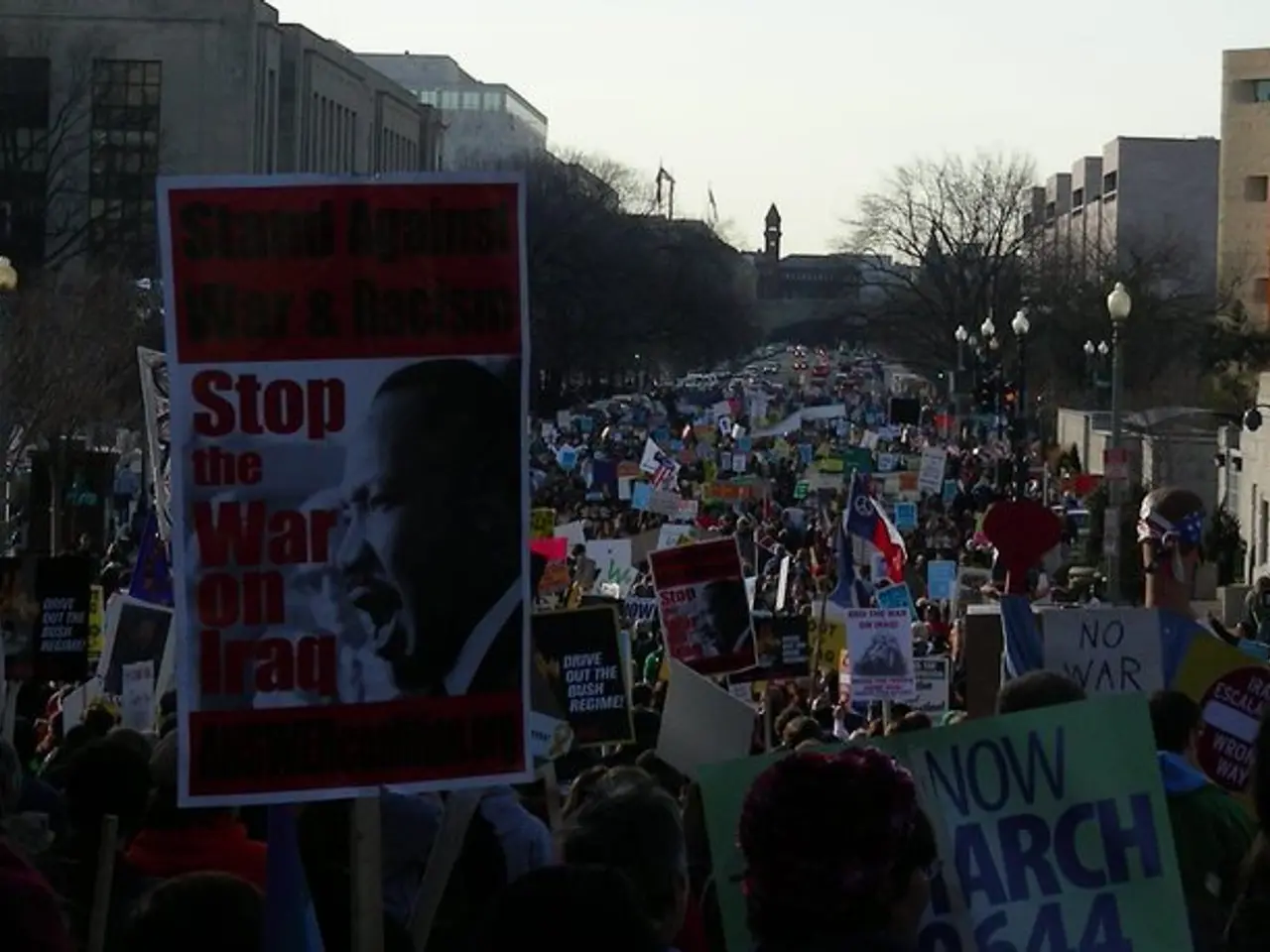Trump Urges Fed for Interest Rate Reductions, Issues Warnings to the Governing Body
The ongoing demand by former U.S. President Donald Trump for immediate interest rate cuts has ignited a storm of discussions, raising concerns about the potential impact on the Federal Reserve, the economy, and the independence of key economic institutions.
Trump's frustration with the Fed is not new, as he has previously clashed with current Chair Jerome Powell over interest rates during his presidency. His latest call, made on his platform Truth Social, has sparked strong reactions from economists, investors, and political observers, causing questions about the future of the U.S. economy and the independence of the Federal Reserve.
Trump has criticized Powell’s cautious approach in maintaining interest rates at 4.25% to 4.5%, arguing that lowering rates would save the nation "hundreds of billions of dollars" and stimulate the economy. However, Powell’s stance reflects a data-driven and cautious strategy aimed at controlling inflation and assessing economic impacts, particularly amid Trump’s tariff policies.
If Trump’s demand results in political pressure on the Fed to cut rates prematurely, it could risk overheating the economy, increasing inflation, or disrupting the financial markets that rely on predictable monetary policy. Moreover, public conflict between the President and the Fed Chair threatens to erode the Fed’s credibility and independence, which are crucial for effective economic management.
This situation highlights a deeper issue: America's central bank may be caught between doing what's best for the economy and responding to political attacks. If Trump continues to push for rate cuts, investors might start betting on them, even if the Fed isn't planning to lower rates. This could potentially make the market more unstable.
When rates are low, borrowing becomes cheaper, causing people to spend more, which can help the economy grow. However, when rates are increased, loans become more expensive, causing people to spend less, which can help slow down rising prices. Over the past two years, the Fed has raised rates to fight inflation. Inflation has dropped since then, but Powell says it's still too early to lower rates again.
The Federal Reserve Board can step in if needed, but it's not something they usually do. The board typically does not override its chair, and politicizing the Fed, according to economist Diane Swonk, could hurt its ability to manage inflation and jobs fairly. President Biden's team has not commented on this issue as of yet.
As 2024 approaches, the fight over interest rates is expected to become louder, messier, and more political. Trump has threatened that if current Federal Reserve Chair, Jerome Powell, does not act, the rest of the Fed board should take control. Trump believes that the central bank raised rates too fast during his presidency, which slowed down economic growth. He is once again asking for lower interest rates, stating that high rates are hurting everyday people, making it difficult to buy a home, get a loan, or run a small business.
This moment could potentially make the market more unstable. The post by Trump has been reported by Coin Bureau, and markets have not reacted strongly yet to Trump's demand for rate cuts. However, the potential consequences include increased political interference in monetary policy, risks to economic stability, and challenges to institutional trust in key economic agencies.
- The ongoing debate over interest rate policies, instigated by Donald Trump's latest demand for immediate cuts, has extended to war-and-conflicts, crime-and-justice, general-news, and politics discussions, with concerns about potential impacts on the Federal Reserve, the economy, and the independence of key economic institutions.
- Amidst the escalating conflict between Trump and the Federal Reserve Chair Jerome Powell, policy-and-legislation regarding the central bank's independence and the effectiveness of its economic management is under scrutiny, potentially leading to increased political interference, economic instability, and challenges to institutional trust in key economic agencies.








